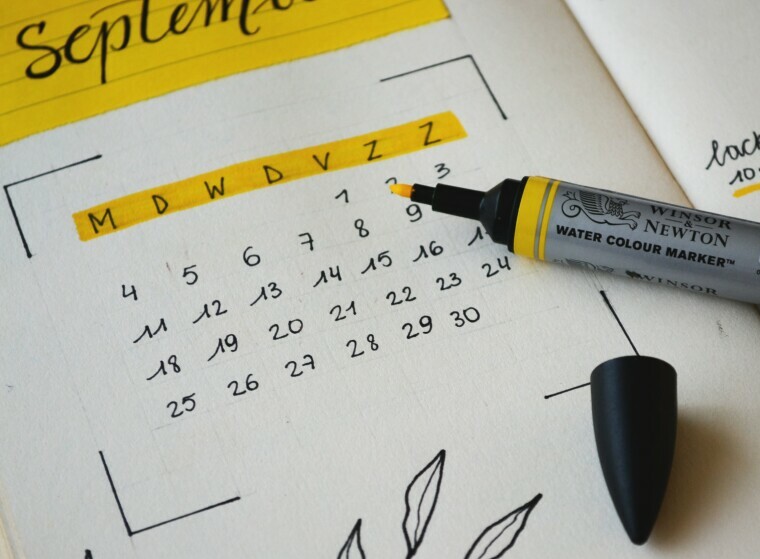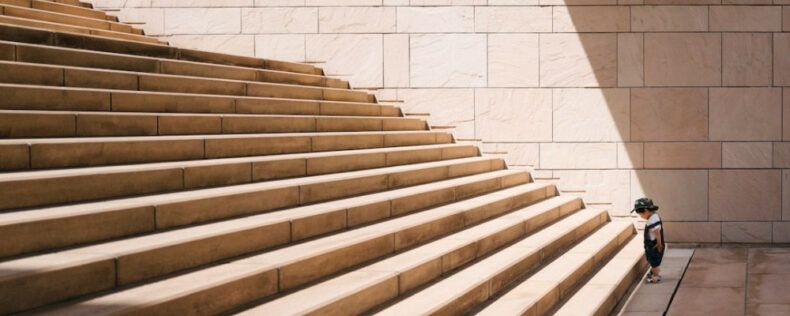Building muscle is far from a linear process. You could be making steady progress until all of a sudden, you hit a wall and aren’t able to see further improvements in your strength. You keep training, but you’re stuck doing the same number of reps at the same weight. This is what’s known as a muscle growth plateau.
When you hit a plateau, it just seems like there’s nothing you can do to overcome it, which can leave you with feelings of despair and defeat. However, I’m here to tell you that it’s definitely something you can break through. Everyone experiences plateauing at some point in their training, so it doesn’t mean you aren’t capable of gaining any more strength and muscle, even if that’s what it feels like in the moment.
If you’re experiencing a plateau, instead of completely giving up on your fitness goals, you’ll be able to overcome it by simply experimenting with a few tweaks to your routine. Nothing happens overnight when it comes to muscle growth, but in this post, I’ll explain some of the adjustments you can make that may allow you to finally start seeing progress again.
Fix the Easy Mistakes First
If you find yourself hitting a plateau, the first thing you should do is stop and ask yourself, why’s this happening? Use it as a chance to reflect on everything you’re doing, and see if there are ways to improve how you train or how you recover.
When it comes to your training, are you training as effectively as you can? Do you use proper technique that lets you correctly engage and activate the targeted muscle, and are you fully exerting your muscles when you work out? Perhaps you’re not training at your full potential because you’re spending too much energy warming up or not resting enough between sets
Outside of the gym, think about whether you’re letting your muscles recover properly. Maybe you’re not getting enough protein and sleep every day, both of which are crucial to muscle growth.
If you can identify any areas of improvement, be sure to correct these first to see if that solves your problems. In reality, as you spend more time in the gym, these factors will become increasingly important, so even a small change can have a profound effect.
Stop Training So Hard
Something else to think about if you’re having a hard time building strength in a particular muscle is how often are you training that muscle?

If a muscle isn’t getting stronger, your first reaction might be to work it out more frequently; however, this might be further contributing to the problem. If you’re exerting a muscle every day or every other day, you’re not giving it a chance to fully recover and get stronger.
Remember, training gives muscles the necessary strain and stimulation to grow, but the actual growth occurs during rest and recovery. Therefore, pushing past a plateau may actually require you to train less frequently and give your muscles more time to recover between workouts.
On the other hand, training too infrequently may also be an easy explanation as to why you’re not progressing. If you’re only working out a given muscle once a week or less, your muscles simply aren’t receiving enough consistent tension to make significant improvements in strength or size. If this is the case, then you should try to increase your training frequency.
I’ve also written another post on how often you should work out, so check it out if you’d like more guidance on finding that middle ground where you’re training frequently enough without overdoing it.
Re-Work Your Routine
If you’re training consistently enough and doing everything correctly with your current routine, but still in a plateau, then you might want to consider making some adjustments to the exercises in your routine. Try replacing exercises in which you’re not progressing for new exercises that might better address the areas you want to focus on. Or instead of replacing an exercise altogether, simply add on new workouts to supplement what you’re already doing.
First, this can help you strengthen weaker parts of muscles or secondary muscles. For example, if you’re plateauing on your bench press, this might not be an issue with your chest muscles, but rather your tricep muscles. By incorporating additional tricep exercises into your workouts, you can strengthen your triceps enough so they can support a heavier load when you bench press.
Another benefit is that adding extra exercises to your routine can increase your total training volume and bring your muscles closer to their full training capacity. Maybe it’s just that you’re not working out your muscles thoroughly enough each time, so an additional exercise might be able to push out that last but crucial bit of exertion to force it to finally grow.
However, this doesn’t mean you should find a million new exercises to add to your routine. Doing a bunch of junk volume after your muscles have already been depleted won’t provide much benefit; you’ll just be wasting a lot of unnecessary time in the gym.
Patience, Patience, Patience…
There are many things you can do to overcome a plateau in your muscle growth. However, sometimes the best thing you can do is just be patient, continue with what you’re doing, and give yourself more time to show improvement.
What might feel like a plateau at times may simply just be a natural part of the muscle-building process. It’s a slow process, and as you train more and more, every incremental bit of muscle takes more time and effort to build.
Maybe you’ve been making rapid progress during your couple of months in the gym, during what’s known as the newbie gains stage, and now it’s taking you longer than expected to continue progressing. This doesn’t mean you’ve hit a plateau; you just have to get used to the fact that muscle growth will happen a lot more gradually from here on.
A Necessary Evil

Hitting a plateau in your strength training can be incredibly frustrating. Whatever you did to get to this point just all of a sudden stops working for seemingly no reason, without a clear indication as to what you’re doing wrong and what changes you need to make.
As irrational and infuriating as they can be, plateaus aren’t necessarily bad. They force us to figure out how to build muscle more effectively and develop better habits. They’re almost like security checkpoints, ensuring that we have the physical and mental tools to continue progressing without being susceptible to negative outcomes like overexertion and injury.
The next time you hit a plateau, instead of viewing it as an obstacle, use it as an opportunity for improvement and refinement. Once you’ve figured out the right changes you need to make, you’ll emerge on the other side of the plateau stronger physically, but also more knowledgeable and experienced as a lifter.

